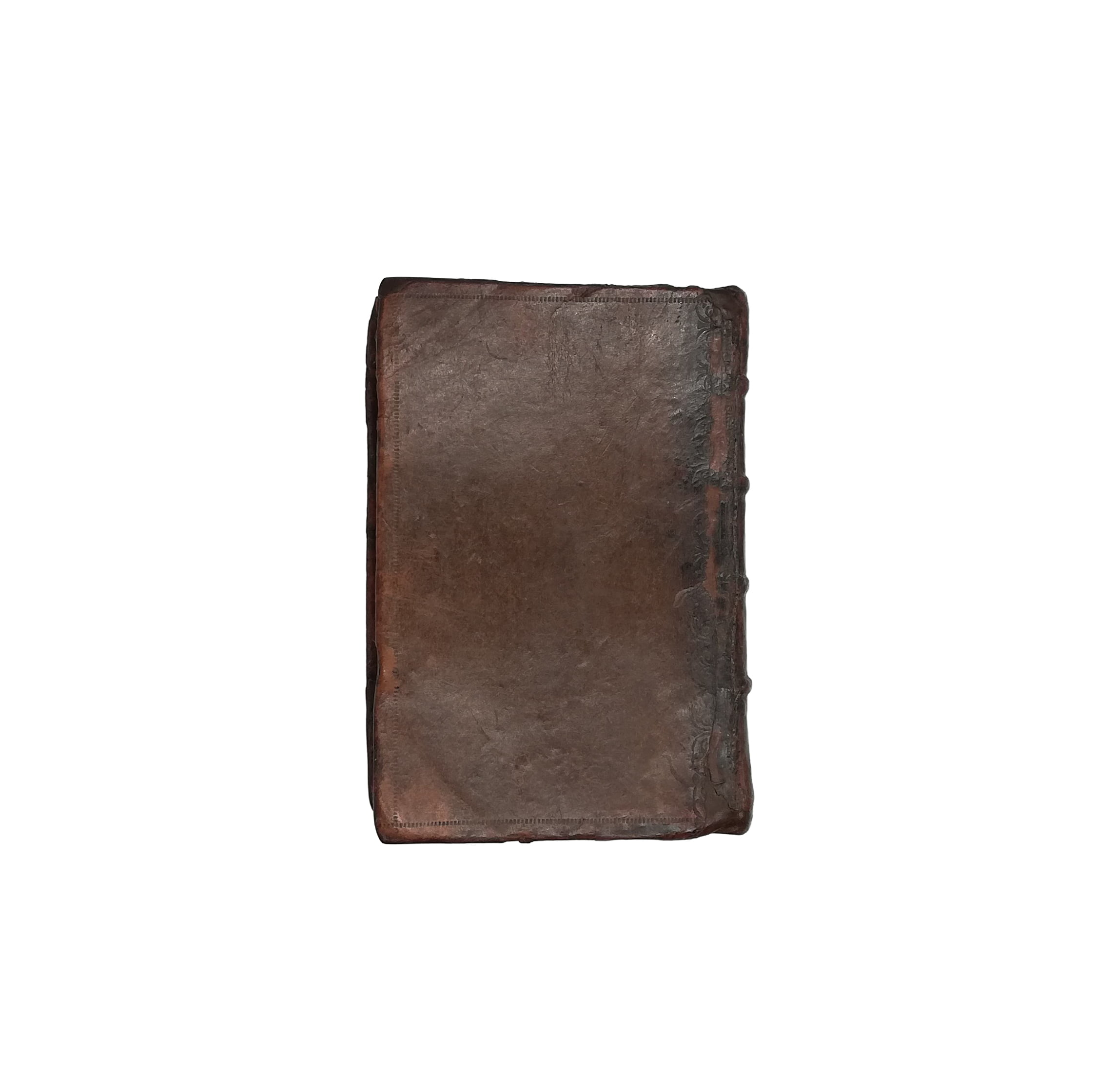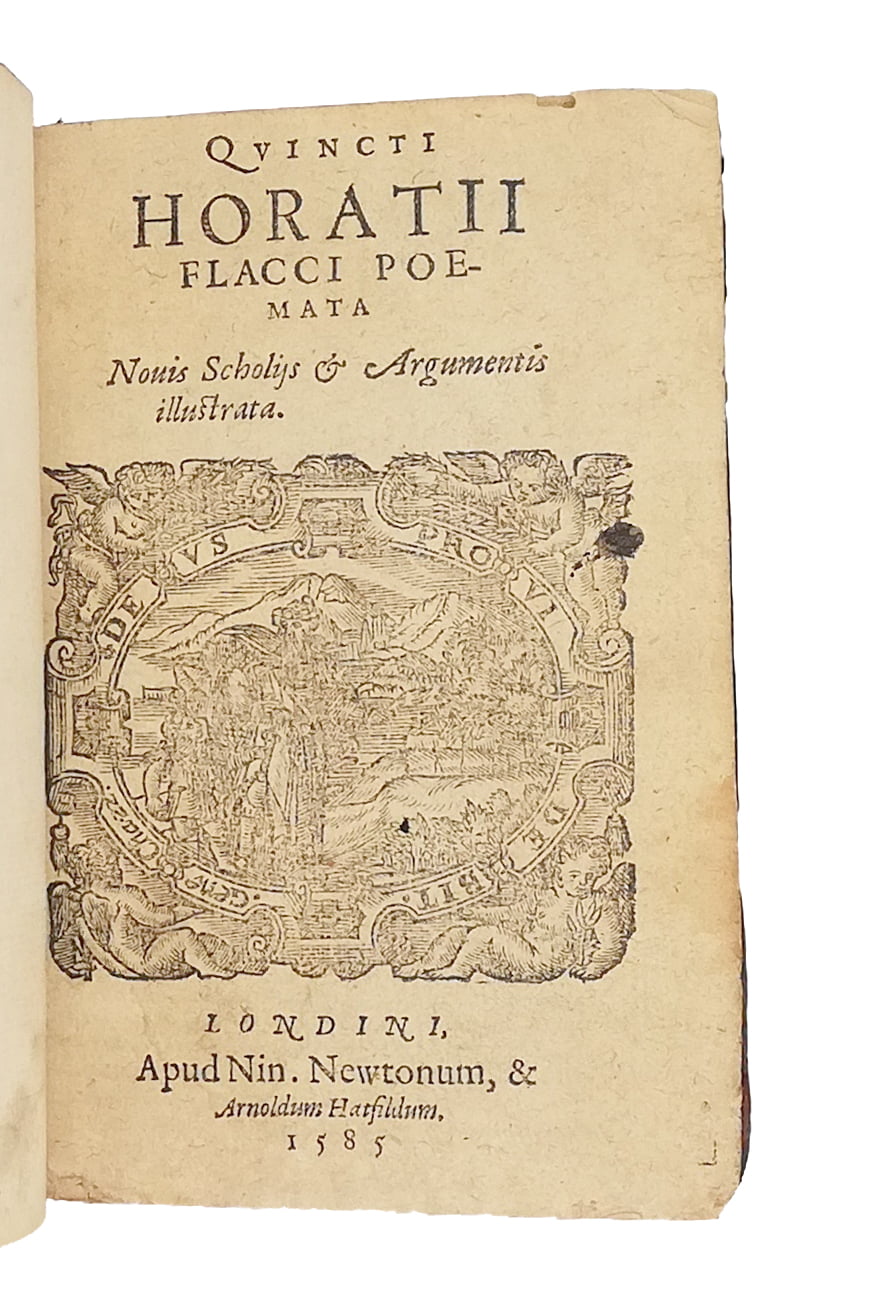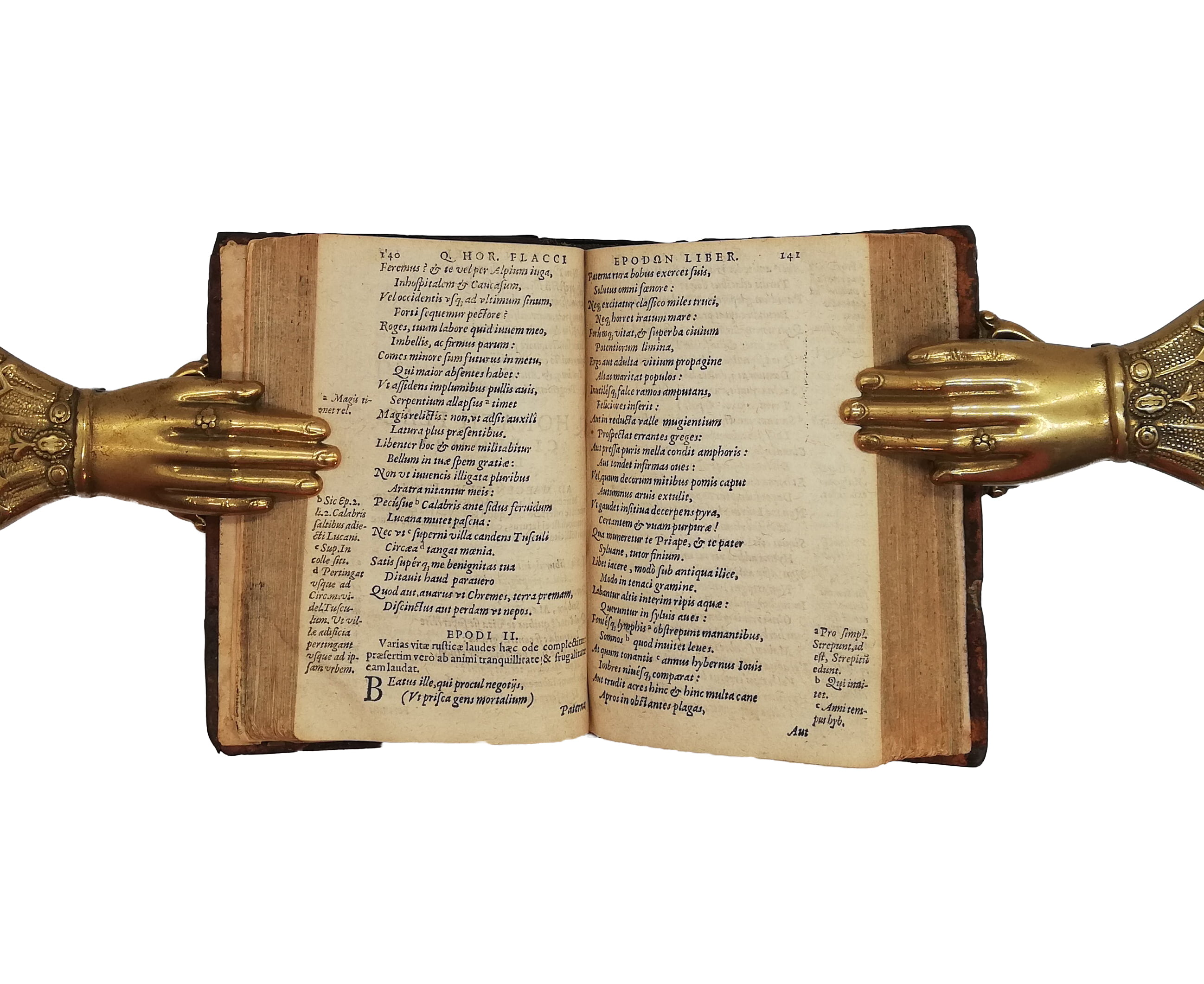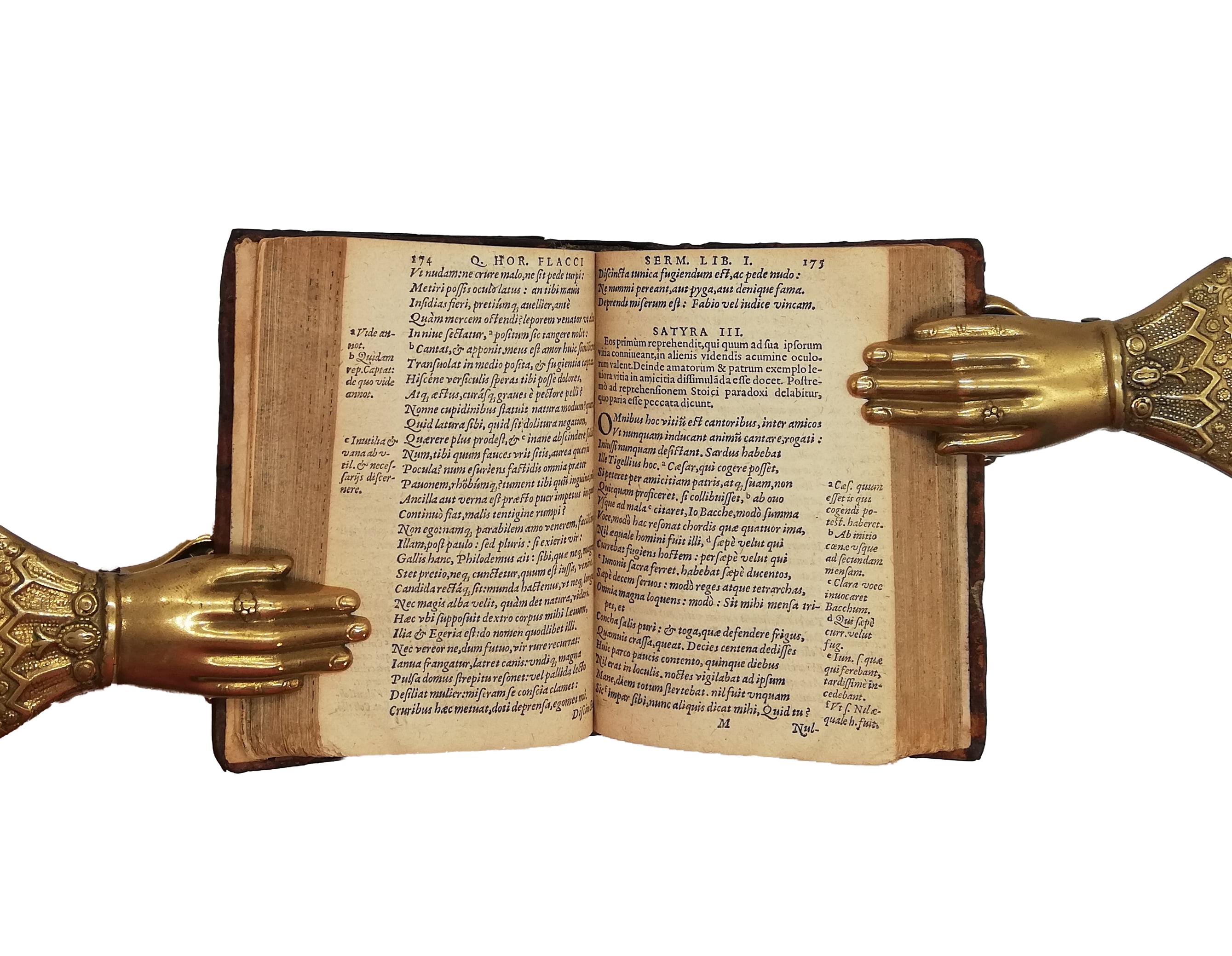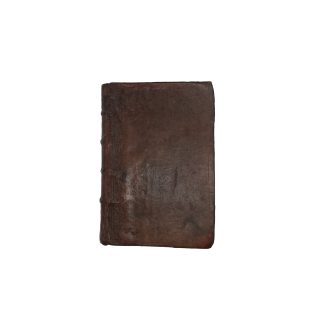HORATIUS FLACCUS.
SECOND KNOWN COMPLETE COPY
Poemata. nouis scholijs & argumentis illustrata.
London, Apud Nin. Newtonum, & Arnoldum Hatfildum, 1585£4,250.00
16mo. Two parts in one. pp. [ii], 476. A-Y⁸, Aa-Gg⁸, Hh7. without “last leaf blank?” ESTC. Italic letter, some Roman. Woodcut printer’s device on first title, small typographical ornament on second, “In 2 parts; Part 1 includes “Eiusdem Horatii vita, per Petrum Crinitum”s and “De undeviginti generibus metrorum Horatii. Tractatus Aldi Manutii”; Part 2, .. has separate dated title page; register and pagination are continuous throughout.” ESTC, autograph “Perkins Mag. Col. Cant. Alum Nov. 20th 1740” on fly. Light age yellowing, title and first few leaves a little dust soiled, side notes fractionally shaved in places, more frequently in second work, occasional minor mark or stain, slight soiling to verso of last. A good copy in c1700 calf, covers bordered with blind scroll, spine with raised bands, extremities rubbed, lower corners worn.
An extremely rare early edition of the works of Horace published in England in Latin followed by works by Juvenal and Persius; this edition survives in one other complete copy, at the Bodleian Library; another copy at the Houghton library, Harvard, is described as “Imperfect: a second t.p. is fragmentary; written over with ms. notes; tightly bound, stained and worn, with loss of print.” This edition is only the third edition of Horace in Latin published in England; the first was published 11 years earlier in, though there had been partial English translations of his works from 1565. “In sixteenth-century England too Horace enjoyed increasing respect among the intellectual and literary elite, both for his verse and for his guide to poetry, the Ars Poetica. Some of them had become familiar with Horace’s work through continental editions in Latin, such as Sir Robert Wyatt during his diplomatic missions, others through Thomas Drant’s first translation o the Sermones into English, published in 1556. But for some time there was no single received text of Horace’s corpus in Tudor-Stuart England. .. When editions of Horace’s Poemata Omnia did begin to appear in England in Latin – in the early 1570’s – there was the usual element of competition between printers, with different notes being offered in in different editions. But since in England the poems of Horace were usually combined with the Satires of Juvenal and Persius, and were published unexpurgated, this was not a small or a cheap work, and may not have been targeted primarily at the school market.” Ian Green ‘Humanism and Protestantism in Early Modern English Education’. Horace, however, once established at English grammar schools, maintained a central role in the education of English-speaking elites right up until the 1960s. This edition contains the Odes, much imitated by later poets, especially those of 17th-century in England, followed by the Epodes, Sermones, Epistulae, and the Ars Poetica. Revered as the foremost post-Virgilian poet of the Augustan age, Horace won international acclaim for his poetic works on love, friendship and the benefits of a simple life and the art of poetry. The works had a lasting influence on Western literature, bringing such expressions as ‘Carpe Diem’ into common usage.
The second book contains the famous sixteen satires written by Juvenal, and six by Persius. Juvenal being the greatest of Roman satirical poets. Little is known about Juvenal’s life. His satires were first published between AD c110 and 127 and are characterised by a bitter and ironical humour directed against the vices of Roman society of the time. The third satire is perhaps the best, containing a wonderfully vivid description of Rome (which inspired Dr Johnson’s ‘London’). In his six satires, Flaccus Aulus Persius (AD 34-62) displays his stern Stoic morality in a mixture of styles and rather obscure language. A harsh criticism of the poets at the court of Nero is the subject of the first. The others, which are more homilies than satires, deal with topics such as the abuse of prayer (not for obtaining material goods), the damage caused by vice, and the greatness of Cornutus (Persius’ Stoic teacher).
An exceptionally rare edition, made at an early stage of humanist printing in England.
ESTC S116955. STC 13786, (Bodleian and Harvard copies only, Hvd imperfect)In stock




